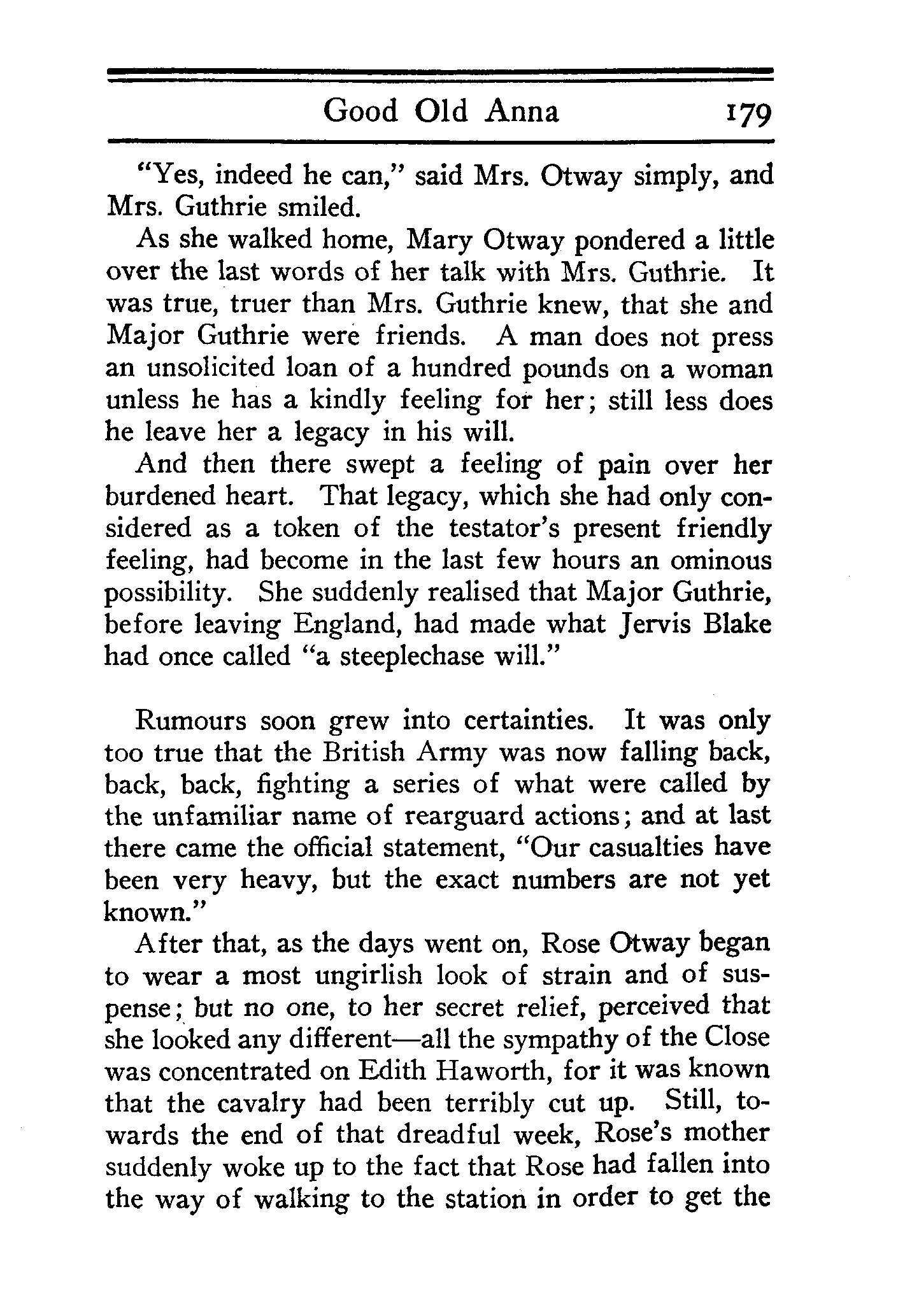 p178 _
-chap- _
toc-1 _
p179w _
toc-2 _
+chap+ _
p180
p178 _
-chap- _
toc-1 _
p179w _
toc-2 _
+chap+ _
p180
"Yes, indeed he can," said Mrs. Otway simply, and
Mrs. Guthrie smiled.
As she walked home, Mary Otway pondered a little
over the last words of her talk with Mrs. Guthrie. It
was true, truer than Mrs. Guthrie knew, that she and
Major Guthrie were friends. A man does not press
an unsolicited loan of a hundred pounds on a woman
unless he has a kindly feeling for her; still less does
he leave her a legacy in his will.
And then there swept a feeling of pain over her
burdened heart. That legacy, which she had only considered
as a token of the testator's present friendly
feeling, had become in the last few hours an ominous
possibility. She suddenly realised that Major Guthrie,
before leaving England, had made what Jervis Blake
had once called "a steeplechase will."
Rumours soon grew into certainties. It was only
too true that the British Army was now falling back,
back, back, fighting a series of what were called by
the unfamiliar name of rearguard actions; and at last
there came the official statement, "Our casualties have
been very heavy, but the exact numbers are not yet
known."
After that, as the days went on, Rose Otway began
to wear a most ungirlish look of strain and of suspense;
but no one, to her secret relief, perceived that
she looked any different -- all the sympathy of the Close
was concentrated on Edith Haworth, for it was known
that the cavalry had been terribly cut up. Still, towards
the end of that dreadful week, Rose's mother
suddenly woke up to the fact that Rose had fallen into
the way of walking to the station in order to get the
[[179]]
p178 _
-chap- _
toc-1 _
p179w _
toc-2 _
+chap+ _
p180